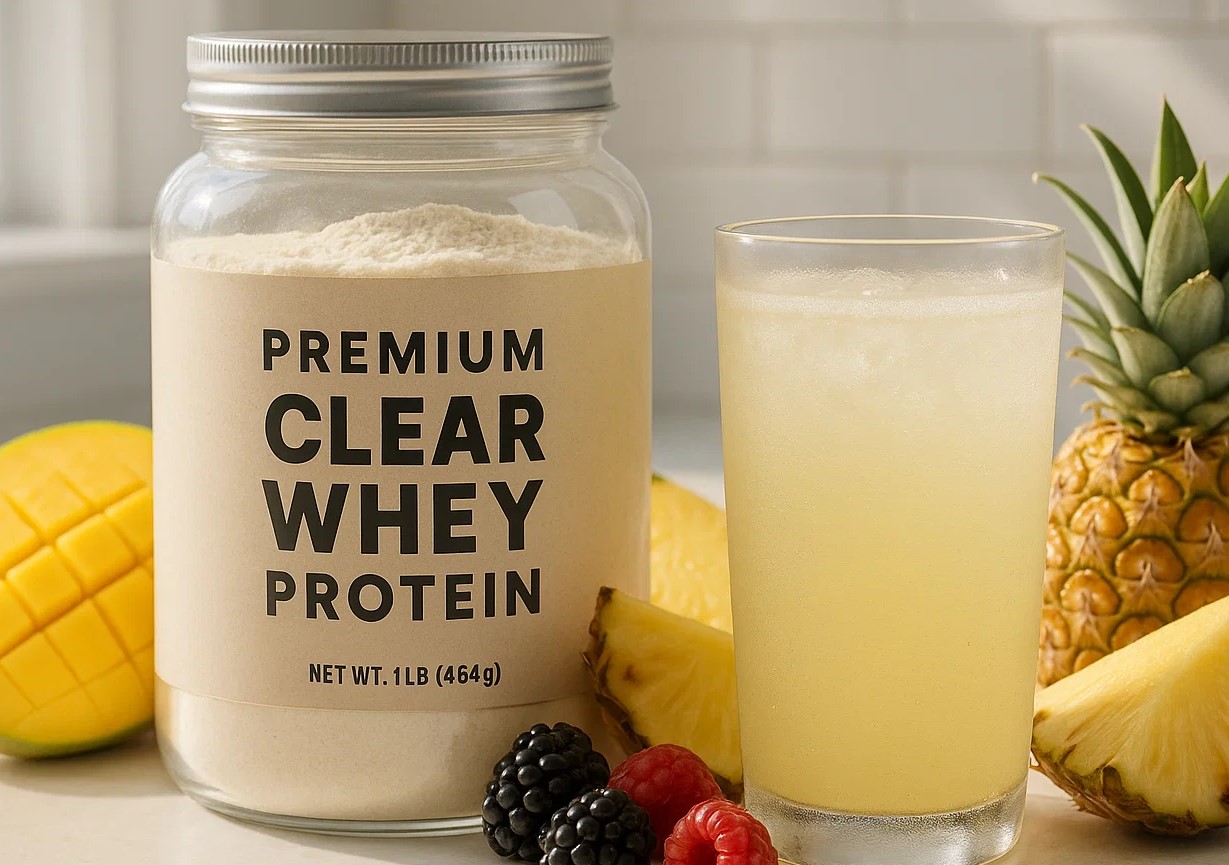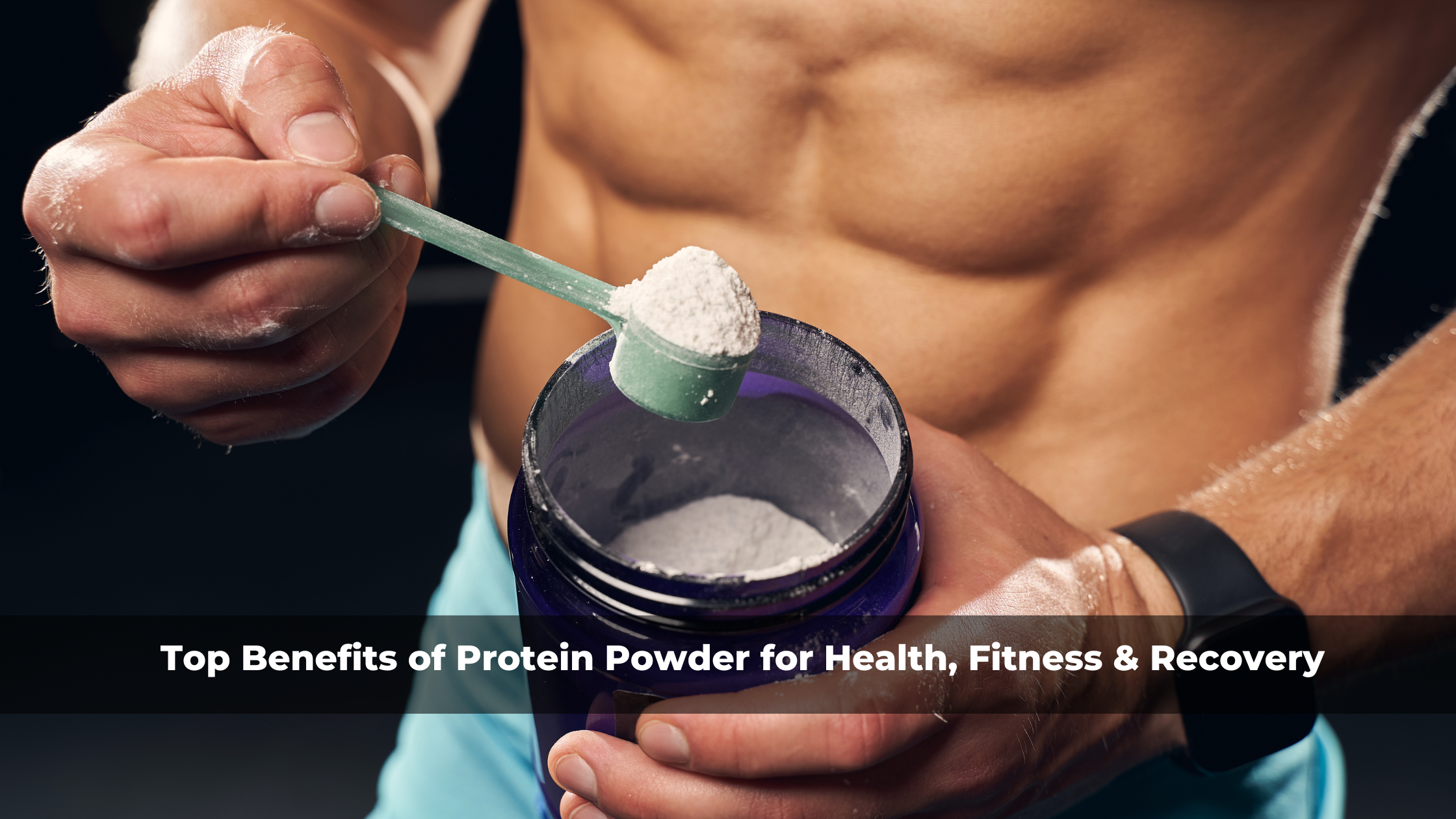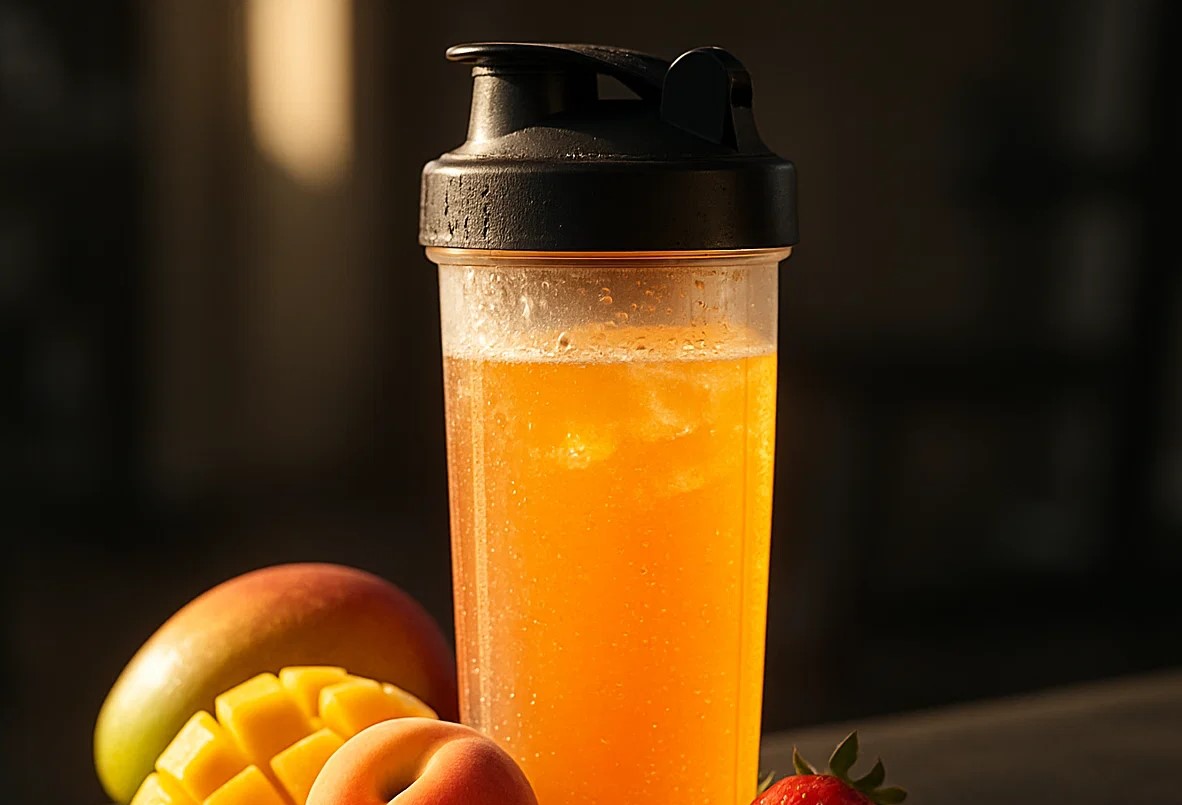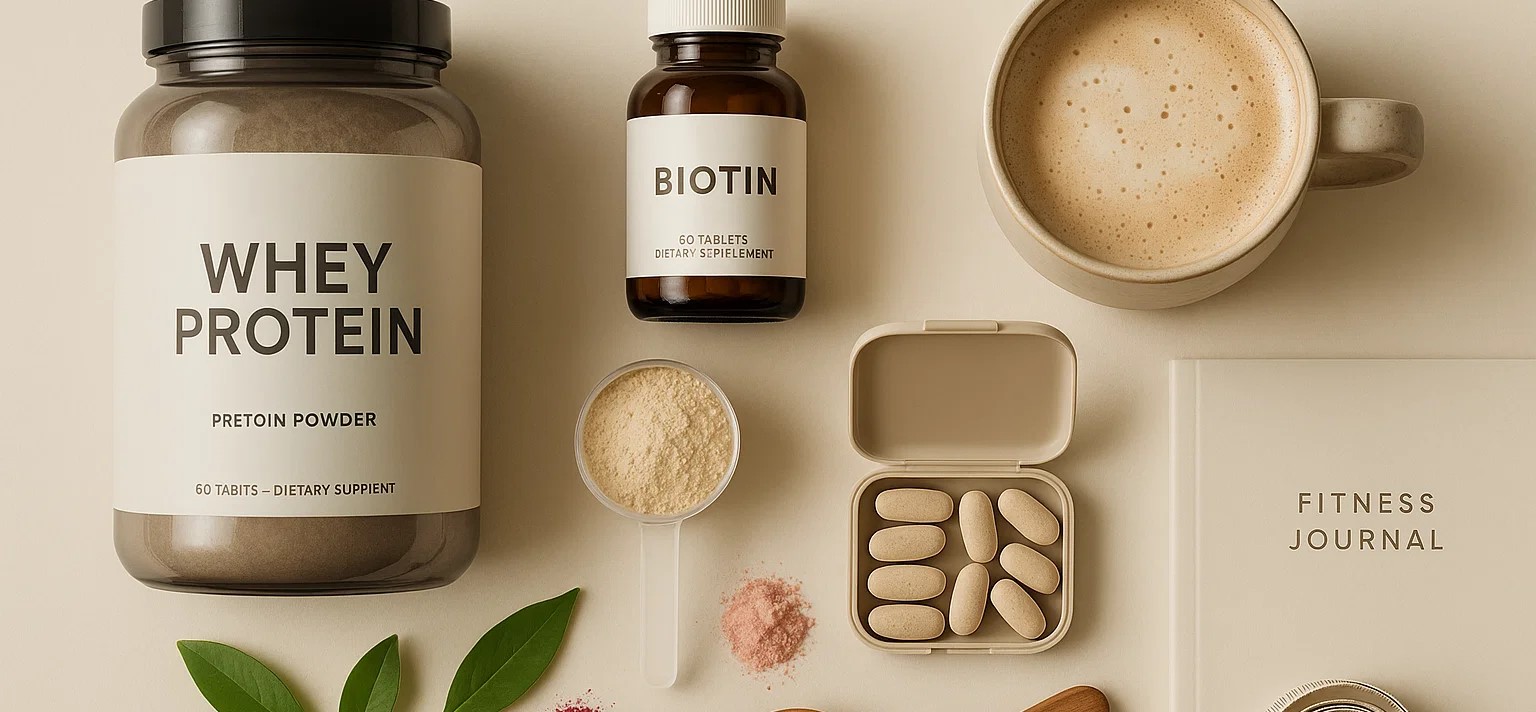The Ultimate Guide to Whey Protein for Indian Parents in 2025

Strong 8k brings an ultra-HD IPTV experience to your living room and your pocket.
The aroma of freshly made parathas fills the air in a modern Indian kitchen. A father, sipping his morning chai, watches his 19-year-old son vigorously shake a bottle filled with a milky liquid. He recognizes the large plastic tub on the counter—a recent addition to the pantry that has become a silent point of contention. “Son,” he begins, his voice laced with genuine concern, “Our wrestlers in the akhada grew strong on milk, ghee, and almonds. Are you sure this foreign powder is good for you? What's wrong with our own food?”
✍️ If you’re managing lactose sensitivity but still want high-quality protein, check our article on whey protein isolate, which contains minimal lactose and provides over 90% pure protein.
This article is a bridge. It is written for the young adult seeking to explain their choices and for the parent seeking to understand them. We will respectfully address the cultural roots of this skepticism, answer the most pressing questions with evidence, and provide a clear, safe path forward for families, all guided by the transparent Food Pharmer ethos of Only What's Needed.
The Cultural Roots of the Whey Resistance
To understand the hesitation, we must look at the foundation of Indian wellness: the kitchen. For centuries, our food has been our medicine. The trust in haldi doodh (turmeric milk), fresh paneer, and homemade curd is absolute. This deep-rooted belief in whole, natural foods creates a natural suspicion towards packaged nutrition.
This is compounded by three key factors:
The Sanctity of Ghar Ka Khana (Home-cooked Food): There's a powerful belief that a balanced traditional diet can and should meet all nutritional needs. The idea of "supplementing" it feels like an admission that our time-tested food is somehow inadequate.
The Ghost of Adulteration: India has a long history of battling food adulteration. This has bred a healthy, if sometimes excessive, skepticism of packaged goods. Parents worry if the expensive whey protein powder is genuine or just a mix of chalk and cheap flour—a legitimate fear in a loosely regulated market.
The "Trainer Bhaiya" Effect: Many parents perceive gym trainers as the primary influencers, often viewing them as salespeople rather than qualified nutritionists. They worry their children are being persuaded by someone with a vested interest, not a scientific background.
Seven New Parent Questions & Evidence-Based Answers
Let's address the most pressing concerns head-on, providing clear, scientifically-backed answers to reassure families about whey protein safety.
“Will whey damage my child's kidneys or liver?”
This is the most pervasive fear. The idea is that a high-protein "powder" is an unnatural burden on the body's filtering systems.
Evidence-Based Answer: For a person with healthy, functioning organs, this claim is a myth. Think of your kidneys as a highly advanced, durable sieve. They are built to filter metabolic byproducts, including urea from protein digestion. Numerous studies, including a major review from the National Institutes of Health (NIH), have concluded that high protein intakes (up to 2g per kg of body weight, and even higher) do not adversely affect kidney function in healthy individuals. The confusion arises because people with pre-existing kidney conditions are advised to manage their protein intake. Whey doesn't cause the problem; it's simply something to manage if a problem already exists.
“Is whey the same as steroids or hormonal drugs?”
The link between gyms, muscle growth, and steroids has led to a dangerous misconception that all supplements are the same.
Evidence-Based Answer: This is fundamentally incorrect. Comparing whey protein to steroids is like comparing fresh fruit juice to hard liquor. Both might originate from plants, but they are entirely different substances with different effects. Whey is a natural food product derived from milk during the cheesemaking process. It is a source of amino acids, the body's building blocks. Steroids are synthetic hormones that manipulate the body's endocrine system, often with severe health consequences. A pure, tested whey product contains food-grade protein, nothing more.
“If they stop, will their body become weak or dependent?”
Parents worry that whey is a "crutch" and that the body will lose its natural strength or become dependent on the supplement.
Evidence-Based Answer: The body does not become "dependent" on whey any more than it becomes dependent on eggs or chicken. Muscle strength is a result of stimulus (exercise) and repair (fueled by protein). Whey protein is simply a highly efficient fuel for that repair process. If a person stops exercising and eating enough protein (from any source), their muscles will naturally shrink (atrophy). This is a normal biological response to lack of use, not a withdrawal symptom from a supplement. Whey protein long term effects are positive when paired with an active lifestyle, not dependency.
“Does whey trigger acne, pimples, or gut problems?”
Many parents notice skin flare-ups or hear their children complain of bloating, linking it directly to the new supplement.
Evidence-Based Answer: This can happen, but the culprit is often not whey itself, but the type and quality of the whey. Lower-quality whey concentrates contain higher levels of lactose and certain dairy-derived growth factors (like IGF-1) which, in sensitive individuals, can trigger acne or digestive distress. This is a primary reason why choosing the right whey protein for beginners is crucial. High-purity whey protein isolate or clear whey protein has almost all the lactose and fat filtered out, making it much gentler on the gut and less likely to cause skin issues.
“Why not just increase milk, curd and paneer instead?”
This is a logical question based on trusted Indian diet protein sources.
Evidence-Based Answer: While milk, curd, and paneer are fantastic foods, the whey vs milk vs paneer debate comes down to three things: speed, purity, and practicality.
Speed: Whey is a "fast-acting" protein, absorbed rapidly by the body, making it ideal for kickstarting muscle recovery immediately after a workout. Casein, the main protein in milk and paneer, is "slow-acting."
Purity: To get 25 grams of protein, you need about 1 scoop of whey. To get the same from paneer, you'd need about 140g, which also comes with ~28g of fat. Whey isolate delivers protein with minimal extra calories from fat or carbs.
Practicality: Carrying a serving of paneer to the gym is impractical. A shaker bottle is convenient.
“What do 10–15 year outlook studies show — any long-term harms?”
Parents are rightly concerned about the unknown long-term consequences of consuming a processed supplement.
Evidence-Based Answer: Whey protein is one of the most extensively studied supplements on the planet. The scientific community has decades of research on athletes and active adults who have used it for long periods. These longitudinal studies consistently support the safety and benefits of whey protein long term effects, showing no link to the chronic diseases it's often feared to cause. It's considered a safe, functional food for supporting an active lifestyle over a lifetime.
“Is my kid only using whey because peers or trainers persuaded them?”
This is a valid concern about social influence and unqualified advice.
Evidence-Based Answer: Peer and trainer influence is a powerful force. This is why education is the best tool. Instead of banning it, this is an opportunity for a constructive conversation. Ask your child why they think they need it. Help them research their actual daily protein requirements. Guide them to choose a brand based on transparency and third-party testing, not just because it's popular at their gym. A responsible brand should empower you with information, not just sell you a product.
Science Snapshot: The Facts at a Glance
The Protein Gap: A staggering 73% of urban, affluent Indians are protein-deficient, according to a 2017 IMRB survey. This highlights a clear nutritional gap that quality protein supplements in India can help fill.
Market Trust Issues: The Indian nutraceutical market is expected to reach $18 billion by the end of 2025 (Statista), but a key challenge remains consumer trust due to counterfeit products.
Muscle Synthesis: Whey protein is rich in Leucine, a branched-chain amino acid (BCAA) that acts as a primary trigger for muscle protein synthesis (the process of rebuilding muscle), making it more effective post-workout than many other proteins (Journal of the American College of Nutrition).
Safety Endorsement: Global bodies like the International Society of Sports Nutrition have published position stands affirming that protein supplementation is a safe and effective way to meet increased protein needs for active individuals.
Comparison Table: Choosing Your Protein Source
| Protein Source | Protein per 100g | Calories (approx.) | Lactose | Absorption Speed | Approx. Cost per 25g Protein | Best Use-Case |
| OWN Clear Whey Isolate | ~85g | 360 | Very Low | Very Fast | ₹90 - ₹110 | Post-Workout, Lactose Sensitive |
| Milk (Whole) | ~3.4g | 60 | High | Slow | ₹35 - ₹45 | Bedtime, General Nutrition |
| Paneer (Cottage Cheese) | ~18g | 320 | Low | Very Slow | ₹50 - ₹65 | Meals, Sustained Release |
| Plant Protein Isolate (Pea) | ~80g | 380 | None | Medium | ₹100 - ₹120 | Vegan Diets, Post-Workout |
Instead of a blanket "no," parents can become empowered partners in their child's fitness journey. Here's a safe, step-by-step approach:
Calculate the Real Need: First, determine if a supplement is even necessary. A sedentary person needs ~0.8g of protein per kg of body weight. An active person may need 1.2-1.7g/kg. Use an online calculator or consult a nutritionist.
Become a Label Detective: Teach your child to read the ingredients. Look for a short list. Avoid products with excessive fillers, thickeners (like xanthan gum), artificial sweeteners (like sucralose, aspartame), or proprietary blends that hide dosages.
Verify the Brand's Credibility: Choose a brand that offers complete transparency. Look for an FSSAI license number on the tub. The best whey protein in India will provide third-party lab test reports for purity and potency, often accessible via a QR code on the package.
Start Small: Begin with half a scoop mixed with water to see how the body reacts. This helps assess tolerance without overwhelming the system.
Observe and Adjust: Monitor for any discomfort or skin issues. If they arise, consider switching to a cleaner option like a whey isolate or clear whey protein.
Consult a Professional: For children under 18 or with any pre-existing health conditions, it's always wise to have a quick chat with a pediatrician or a registered dietitian before starting.
What Responsible Brands Do: The Only What's Needed Example
In a market where trust is low, the burden of proof is on the brand. At Only What's Needed, we built our brand to be the answer to parental skepticism. Here's how our Food Pharmer philosophy translates into peace of mind for your family:
Radical Transparency: We don't just sell supplements; we sell certainty. Every ingredient is listed clearly, with its exact dosage. There are no hidden blends or marketing jargon. To learn how to spot the difference, read our step-by-step tutorial, Decoding Supplement Labels: A Parent's Guide.
Third-Party Testing: Every batch of our whey protein is tested by an independent, NABL-accredited laboratory. These reports, which check for protein accuracy and contaminants, are accessible to you. This is our guarantee against adulteration.
Superior Formulations for Comfort: We offer Clear Whey Protein, an advanced formulation that is virtually lactose-free and feels like drinking a refreshing juice, not a heavy shake. This makes it ideal for beginners and those worried about digestive whey protein side effects. Learn more in our comprehensive guide, The Ultimate Guide to Clear Whey vs. Regular Whey.
Flavors for the Indian Palate: We believe healthy shouldn't be boring. We develop flavors like delectable coffees and tropical fruits that appeal to Indian tastes, making nutrition an enjoyable experience.
Frequently Asked Questions (FAQ)
1. How much whey protein is safe for active teens (16-18)? A single scoop (25-30g of protein) per day is generally safe and sufficient for an active teen, used to supplement a balanced diet, especially after sports or a workout.
2. Which whey is best if my child is lactose sensitive? A Whey Protein Isolate or, even better, a Clear Whey Protein is the ideal choice. These are filtered to remove over 95% of lactose, making them very easy to digest.
3. Will whey make my child unnaturally bulky or stunt their growth? No. Bulking up requires massive calorie surplus and intense training. For teens, whey supports lean muscle development and recovery. There is no scientific evidence that whey protein stunts growth; in fact, adequate protein is essential for healthy development.
4. Is clear whey protein really better for digestion? Yes, for many people. Its ultra-filtered nature and lack of milky texture make it lighter on the stomach and less likely to cause the bloating associated with lower-quality whey concentrates.
5. Are there certified tests I should ask for before buying protein supplements in India? Absolutely. Ask the brand for a Certificate of Analysis (COA) from a third-party, NABL-accredited lab. This report verifies the protein content and ensures the product is free from heavy metals and microbiological contaminants.
6. Can whey protein help my school-age child who plays cricket or football? Yes. For young athletes, a small serving (half a scoop) of high-quality whey can be a convenient and effective way to help their muscles recover after intense practice or a match, ensuring they are ready for the next day. Always consult a pediatrician first.
7. How can I spot a low-quality whey protein from the label? Look for red flags like "proprietary blends," a long list of artificial sweeteners and fillers, a low protein-per-serving ratio (e.g., only 15g protein in a 30g scoop), and the absence of third-party testing information.
8. Can pregnant or breastfeeding women use whey protein? While whey protein is generally safe as it's derived from milk, pregnant or breastfeeding women have unique nutritional needs and should always consult their gynecologist or doctor before adding any supplement to their diet.
Authoritative Sources & Further Reading
Statista:
Nutraceuticals Market in India National Institutes of Health (NIH):
Dietary Protein and Kidney Function FSSAI:
Food Safety and Standards (Health Supplements, Nutraceuticals) Regulations Journal of the International Society of Sports Nutrition:
ISSN Position Stand: Protein and Exercise
Conclusion: From a Kitchen Standoff to a Partnership in Health
The conversation around whey protein in an Indian home doesn't have to be a standoff. It can be a dialogue—one built on mutual respect, scientific understanding, and a shared goal of good health. The concerns of Indian parents are valid, born from a culture of care and a market that often lacks transparency.
The answer is not to dismiss these fears, but to address them with facts and to choose a brand that honors this need for trust. By understanding that high-quality whey is a safe, effective, and convenient food tool, families can move from apprehension to empowerment.
At Only What's Needed, we are committed to being your partner in this journey. We created our products to be the ones a parent could trust and a fitness enthusiast would love. Our Food Pharmer promise means you are getting the purest, most effective nutrition, with nothing to hide.
Ready to provide your family with the trusted nutrition they deserve? It's time to choose clarity. It's time to choose safety. It's time to choose Only What's Needed.
Explore our full range of third-party tested Whey and Clear Whey Protein on our website. You can also find our products through our trusted panel of certified resellers to ensure you always get a genuine product.
Note: IndiBlogHub features both user-submitted and editorial content. We do not verify third-party contributions. Read our Disclaimer and Privacy Policyfor details.







